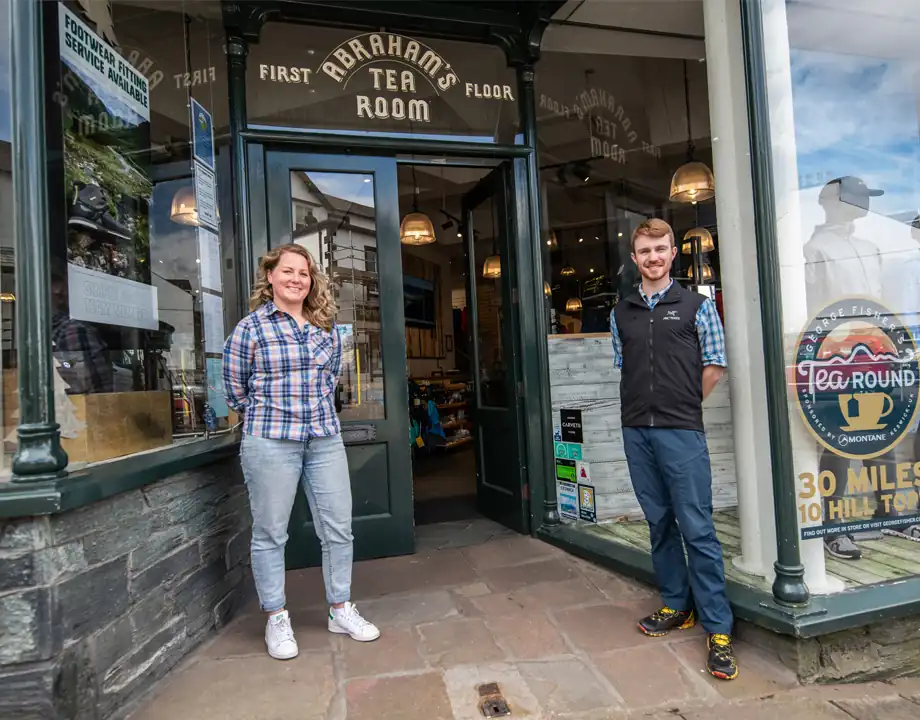
THE PLASTIC BAG DEBATE by George Fisher General Manager Patrick
Written by George Fisher
Wednesday, 17 February, 2021

Last year I wrote about a subject that, on the face of it, seems relatively minor. We need to replace our existing plastic carrier bags for a more environmentally responsible solution. Sounds simple, doesn’t it? However, it turns out to be more complicated than expected.

A brief recap on what we looked at:
- Virgin plastic bags: an obvious no-no, but easy to source and really, really cheap.
- Recycled plastic bags: more energy-intensive and more expensive, along with the obvious drawbacks of virgin plastic bags.
- Biodegradable plastic bags: more energy-intensive and more costly that recycled or virgin plastics. Also significant questions; how long it takes to biodegrade, and what is needed to break it down. There are also serious questions about the toxicity of any remaining by-products.
- Virgin paper bags: very water and energy intensive. However, they do bio-degrade.
- FSC (Forest Stewardship Council) Paper bags: a well-managed virgin wood source for paper. Very energy intensive, but you know they’re managing their forests well and planting trees, so it’s going some way to offsetting the carbon footprint of the process.
- Post-consumer recycled paper bags: more energy-intense than virgin or FSC paper bags, but with obvious recycling benefits. Biodegradable.
We decided at the time we would aim to source a recycled paper bag from the most eco-friendly mill we could find. Ideally one that has a water recovery system and uses renewable energy as its power source. Sounds good. I could feel our environmental halo getting brighter and higher.
So, let the hunt begin. We set off (well our team-member Erika did), contacting bag suppliers, firing off emails with a standard list of questions like:
- Where is the raw material for your paper sourced?
- Do the mills your paper comes from have a water reclamation system?
- Is the energy used in the mills from renewable sources?
To say that it has been a tough road would be an understatement. We’ve had very little information back from many suppliers. Most have no idea, and appear to have no interest in finding out the answers. Given the current climate emergency, this struck me as worrying.
It’s worth sharing one interesting finding with you though. We did find what, on face value, appeared to be the perfect solution for our customer carrier bags. A company that uses waste agricultural material, like leaves and husks, to produce a cellulose they then turn into paper. The sample bags we received were amazing quality, robust and solid. The environmental impact was incredibly low, and the source of the material was ideal. Waste rather than virgin product. An ideal solution.
Two downsides, though. The paper is currently only made in South America, then shipped to Europe, turned into bags and trucked to their final destination. The cost of a bag is exponentially higher: 56p for a small bag, vs 4p for a virgin plastic bag. That 52p across 10,000 units equals £5,200 more for the same number of products. The larger bags were £1.24 vs 15p, so a £1.09 increase. Across 10,000 units that’s £10,900 more for the same products.
We did discuss this solution at length. And it created significant angst. We talked about how much more we’d be willing to pay to ensure we got a low-impact product. How much our customers would be willing to pay for a paper bag with such a strong environmental standpoint.
In the end we decided not to move forward with the repurposed agricultural waste product as the cost was unjustifiable for both the business and the customer. It was an incredibly hard decision; one that I’m not sure, even now, is the right one.
After finding and then deciding not to use this ‘ideal’ product we revisited all of our options. We discussed at length the following: No bags at all. Re-using the plain plastic bags our products are delivered in. A bag for life. Paper bags of some sort. Recycled plastic bags.

For now, we’ve settled on an incremental improvement. A post-consumer recycled paper bag using water-based inks. We’re just in the process of detailing the printing before ordering the first batch. We’ll be ordering small and medium bags in the short term, and the larger bags will come online once we’ve worked through the last of the large plastic bags we have left.
What is the takeaway from this experience? Really reducing your plastic waste, reducing your use and recycling can be harder than you expect. Making the big changes is hard. That’s why we believe it’s important to make small changes and work from there. Lots of people making small changes can have a huge impact.
As an aside if you have an opinion about this, or any comment on what you as a customer would be willing to pay (or not) for a bag, I’d love to hear from you. Please email patrick@georgefisher.co.uk



